The award-winning scientist is solving health problems in the global south and inspiring other girls to follow suit
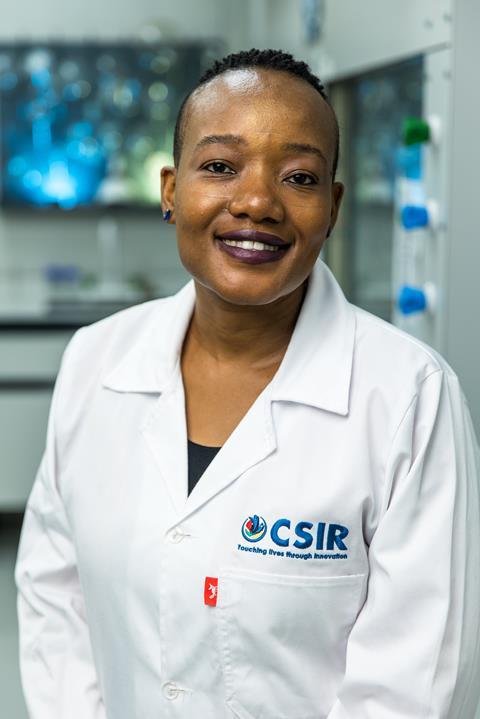
‘If I were to become a scientist, that means I could solve these problems that we have in our communities,’ Bathabile Ramalapa recalls of her earliest motivations to make healthcare more equitable and sustainable. Now heading her own research lab in South Africa, her passion to use science to make a difference has seen her named one of Africa’s rising biotechnology stars.
University was when she really discovered where her strengths and passions lie. ‘I was good at physics and chemistry and found out that I love [chemistry] and that I wanted to study further,’ she says. However, a lack of representation meant that she was unaware of certain postgraduate routes that she could take. ‘I didn’t know there was a world beyond having a [Bachelor of Technology degree] in chemistry,’ she recalls.
While studying for that degree, she got an internship to work at the Council for Scientific and Industrial Research (CSIR), one of the largest research organisations in Africa. Ramalapa joined a group working on infectious diseases and solving the problem of patient noncompliance and tailoring medication for the African population. ‘I always thought that health challenges are solved by medical doctors … I didn’t even know that were so many careers in health,’ Ramalapa says. She stayed at CSIR to do a master’s degree, where she was inspired to pursue further study.
A fellowship for the Erasmus Mundus dual PhD programme allowed her to pursue a PhD in pharmaceutical sciences at the University of Angers in France and a PhD in chemical sciences at the University of Liège, Belgium. After four years of study, in late 2017 she returned to the CSIR as an independent researcher. She was inspired to use her skillset and knowledge to start finding solutions to the high rates of non-communicable diseases affecting South Africa.
Stability and efficiency
Part of her research project was on biotherapeutics, and she could translate this into working on biologics – a type of medication derived from living organisms – in drug synthesis. ‘There is a use of chemistry in making these biologics … you can use chemistry techniques to solve stability issues,’ she says. Ramalapa looked at how innovative chemical processes like microtechnology flow chemistry could make drug manufacturing more efficient.
‘And in 2018 I managed to get myself pregnant.’ Ramalapa felt conflicted – she had always wanted to be a mother, but she had just finished her PhD and needed to get her career on track. She had her second child before the first had turned two: ‘I thought why not just do it all at the same time and when I’m done, I just continue with my career’.
Ramalapa had to manage feelings of inadequacy as she tried to demonstrate her skills and expertise in a professional setting while also navigating motherhood. But when the Covid-19 pandemic hit, the whole world pausing made Ramalapa feel less alone in her efforts to establish her career. She also had a lot of time to think about what she wanted to do now in the CSIR.
We choose the challenges where we can make the most impact
She now leads her own research platform focused on biotherapeutics formulation and delivery to meet needs of low- and middle-income countries. ‘We are trying to use chemistry techniques to formulate biotherapeutics formulations that can be used in disease treatment, medical devices and diagnostics,’ she says. One current project they are working on is treatments and supplements to support patients with diabetes – one of the biggest causes of death in women in South Africa. Ensuring that biotherapies are effective at ambient temperature will eliminate the burden of ultracold chain logistics, making medication more available and effective. ‘We can’t solve all the challenges. We choose the ones where we can make the most impact,’ says Ramalapa.
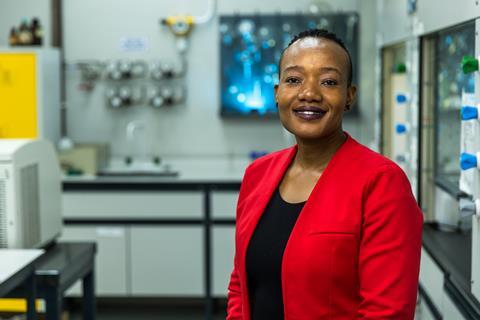
The team is involved in many programmes to support women’s and children’s health. ‘One of our recent projects was developing a medical device that can inhibit HIV virus in breast milk,’ says Ramalapa. The device will have a filter that inactivates the virus so by the time the milk reaches the bottle it is safe to drink. This offers an affordable solution for mothers living with HIV that also reduces the need for hospital visits. Ramalapa also emphasises the need for increasing awareness and improving communication so women living in rural areas have the same access to healthcare that their urban counterparts have.
Now in a leadership position, most of Ramalapa’s time is spent approaching stakeholders for funding and using her voice for key decision making. She also mentors young students and touches on her own experience to advocate for better support for African women in the early stages of their research careers. One of her ambitions is to move away from research towards entrepreneurship and commercialisation: ‘I don’t want [science] to be something that we are talking about. I want to see it happening.’





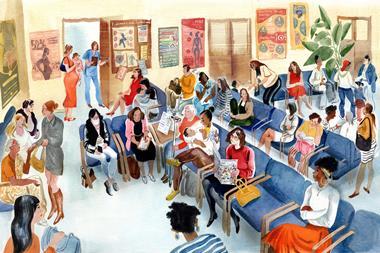
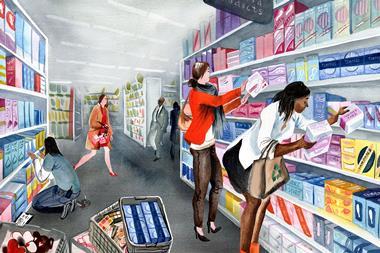
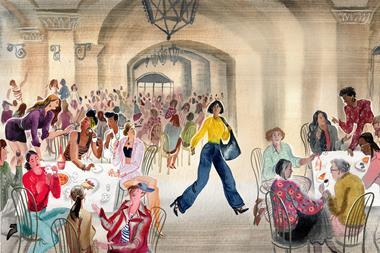









No comments yet